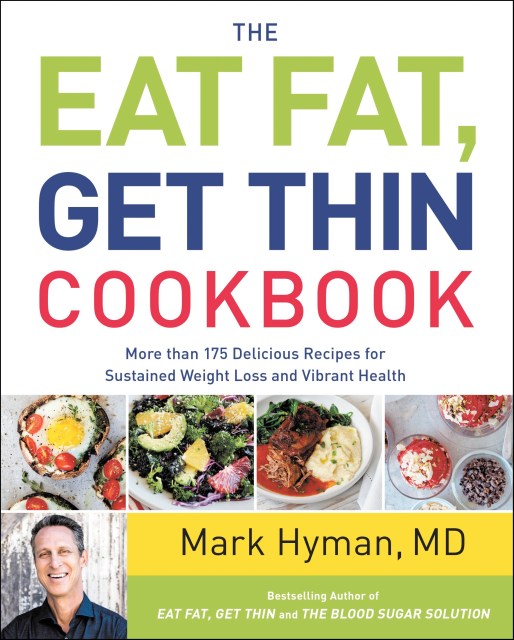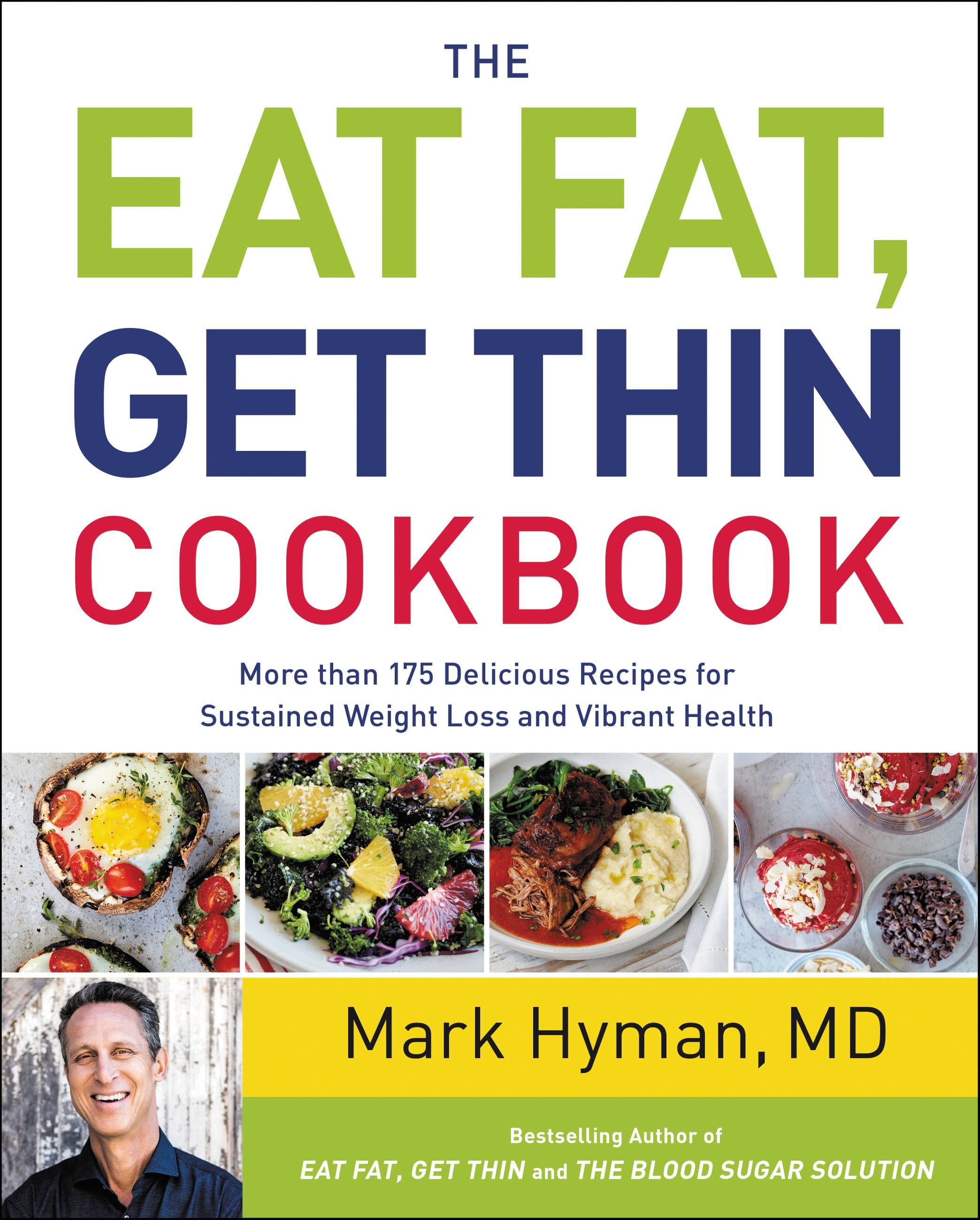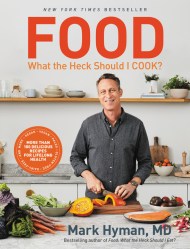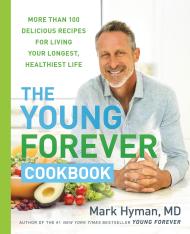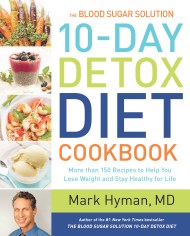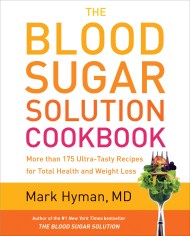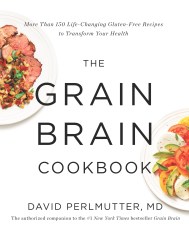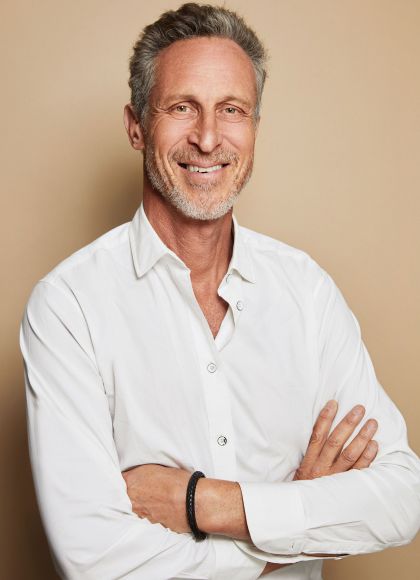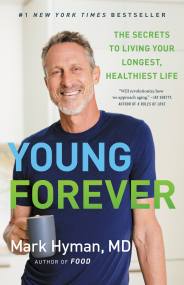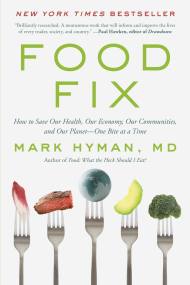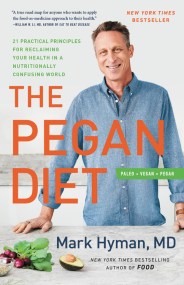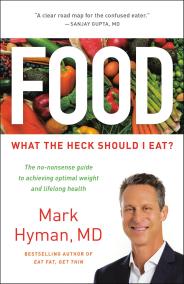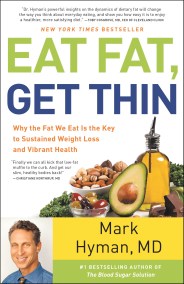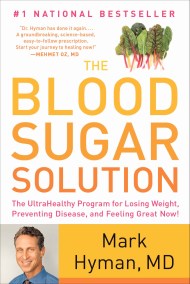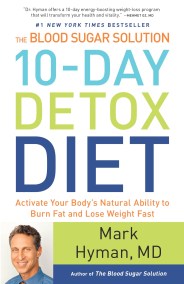By clicking “Accept,” you agree to the use of cookies and similar technologies on your device as set forth in our Cookie Policy and our Privacy Policy. Please note that certain cookies are essential for this website to function properly and do not require user consent to be deployed.
The Eat Fat, Get Thin Cookbook
More Than 175 Delicious Recipes for Sustained Weight Loss and Vibrant Health
Contributors
Formats and Prices
- On Sale
- Nov 29, 2016
- Page Count
- 320 pages
- Publisher
- Little Brown Spark
- ISBN-13
- 9780316317504
Price
$32.00Price
$42.00 CADFormat
Format:
Hardcover $32.00 $42.00 CADThis item is a preorder. Your payment method will be charged immediately, and the product is expected to ship on or around November 29, 2016. This date is subject to change due to shipping delays beyond our control.
Buy from Other Retailers:
The companion cookbook to Dr. Hyman’s revolutionary Eat Fat, Get Thin, with more than 175 delicious, nutritious, heart- and waist-friendly recipes.
Dr. Hyman’s Eat Fat, Get Thin radically changed the way we view dietary fat, and proved that the key to losing weight and keeping it off is to eat ample amounts of good fats. Now, Dr. Hyman shares more than 175 mouthwatering recipes to help you incorporate these good fats into your diet and continue on your path to wellness.
With easy-to-prepare recipes for every meal — featuring nuts, coconut oil, avocados, and lots of other superfoods you thought were “off limits” — you can achieve fast and sustained weight loss. Your health is a life-long journey, and The Eat Fat, Get Thin Cookbook helps make that journey both doable and delicious.
Dr. Hyman’s Eat Fat, Get Thin radically changed the way we view dietary fat, and proved that the key to losing weight and keeping it off is to eat ample amounts of good fats. Now, Dr. Hyman shares more than 175 mouthwatering recipes to help you incorporate these good fats into your diet and continue on your path to wellness.
With easy-to-prepare recipes for every meal — featuring nuts, coconut oil, avocados, and lots of other superfoods you thought were “off limits” — you can achieve fast and sustained weight loss. Your health is a life-long journey, and The Eat Fat, Get Thin Cookbook helps make that journey both doable and delicious.
Series:
-
Praise for Eat Fat, Get ThinToby Cosgrove, CEO of Cleveland Clinic
"Dr. Mark Hyman has helped thousands of people lose weight and lead happier, more energetic lives. His powerful insights on the dynamics of dietary fat will change the way you think about everyday eating, and show you how easy it is to enjoy a healthier, more satisfying diet." -
"A great read that helps make sense of all the conflicting information we've come to believe about including fat in our diets. Dr. Hyman shows, yet again, the powerful role nutrition plays in all of our lives."Maria Shriver
-
"Eat Fat, Get Thin cuts through the big fat lies we've all been fed about dietary fat-including us doctors. Sharing his own experience and that of his many patients, Dr. Hyman lays out a dietary plan that is satisfying, delicious, sustainable, and healthy. Finally we can all kick that low- fat muffin to the curb. And get our slim, healthy bodies back!"Christiane Northrup, MD, author of Women's Bodies, Women's Wisdom
-
"Dr. Hyman hammers home that fats should be the foundation of our diet, an easy step given the power of the research he presents and his delicious recipes."Mehmet Oz, MD
-
"Eat Fat Get Thin deftly reveals how our long-held beliefs about dietary fat are fundamentally flawed and based on misinformation. And beyond the in-depth scientific validation, Dr. Hyman's empowering narrative provides an action plan enabling everyone the opportunity to recapture health and finally attain a healthy body weight."David Perlmutter, MD, author of Brain Maker and Grain Brain
-
"For forty years, we've been told, 'if you don't want fat on your body, don't put fat into your body.' So we cut back on fat from our diet only to become heavier than ever before. Mark Hyman cuts through the confusion, offering a practical (and delicious) way to lose weight for good. I recommend Eat Fat, Get Thin enthusiastically."David Ludwig, MD, PhD, Professor, Harvard Medical School, and author of Always Hungry?
-
"Dr. Mark Hyman has provided an elegant insight into the confusing world of fat. Adding the right type of fat can be a powerful addition to any diet. More importantly, he provides the clinical markers you need to reach to be truly well regardless of your diet. While there is no one ideal diet for everyone, titrating your diet using his basic principles and by adjusting the fat content until you reach his markers of wellness makes this a must-read book for everyone concerned about their future health."Dr. Barry Sears, author of The Zone
-
"Sixty percent of the solid weight of your brain is fat. If someone calls you a fat head say thank you! Eat Fat, Get Thin is a smart, well-researched, delicious roadmap to help you get and stay healthy, reverse illness, and optimize your brain. I highly recommend it."Daniel G. Amen, MD, founder of Amen Clinics and author of Change Your Brain, Change Your Life
-
"Dr. Mark Hyman is one of the most important voices in the world of medicine, health, and nutrition. And his new book--Eat Fat, Get Thin--is exactly why. Armed with clear up-to-date research and years of clinical success, Dr. Hyman explodes the outdated concept of the evils of dietary fat, and explains in an easy-to-understand fashion how the right fats for your body are indeed the right fats for your ideal weight. And he gives you the program to put it all to great use. It's time to do a big course correction in how we understand the fat in our food, and the fat on our bodies. Mission accomplished! Eat Fat, Get Thin may be the most important and effective diet book of the decade. This is way more than a book about losing weight. It's all about being the healthiest and most well nourished version of you. I couldn't recommend this book more highly."Marc David, founder of Institute for the Psychology of Eating and author of The Slow Down Diet and Nourishing Wisdom
-
"Mark Hyman is a food revolution superstar. Here he makes a clear and powerful case that for most people, low-fat isn't the answer, but high-quality fats is. I have no doubt that the vast majority of people will be far healthier for following his advice."John Robbins, author of Diet for a New America and co-founder of The Food Revolution Network
-
"Putting another nail into the dietary-fat-is-bad dogma, Dr. Mark Hyman's Eat Fat, Get Thin shows how this unfairly maligned, often-misunderstood macronutrient can help you become lean, healthy, and full of energy. Don't miss this groundbreaking book!"JJ Virgin, CNS, CHFS, Celebrity Nutrition and Fitness Expert, author of The Virgin Diet and The Sugar Impact Diet
-
"Oftentimes the best way to get the dramatic results we most crave in our lives is to bust through the myths, confusion, and misperceptions that are part of our popular culture. In Eat Fat, Get Thin, Dr. Mark Hyman does exactly that. If you're sick and tired of being sick and tired, listen to this leading voice and follow his simple, yet revolutionary plan to lose weight, regain your energy and clarity and feel great."Nick Ortner, author of The Tapping Solution
-
"In Eat Fat, Get Thin, Dr. Hyman explains how we got into our current dietary disaster zone, and delivers his own potent and practical prescription that can make a world of difference. For many people, this book could be a life-saver."Ocean Robbins, CEO, The Food Revolution Network
-
"Eat Fat, Get Thin is an amazing guide for anyone wanting to answer the question: 'What should I eat for optimal weight and health?' Dr. Hyman has done a superb job of sorting through the confusing science around fat, making this an excellent resource for everyone, including doctors wanting to explain to their patients why our recommendations have changed. The recipes are simple, delicious, and even my picky kids love them. This book is part of what I 'prescribe' to my patients every day."Carrie A. Diulus, MD, Medical Director and Spine Surgeon, Crystal Clinic Spine Wellness Center
Newsletter Signup
By clicking ‘Sign Up,’ I acknowledge that I have read and agree to Hachette Book Group’s Privacy Policy and Terms of Use
